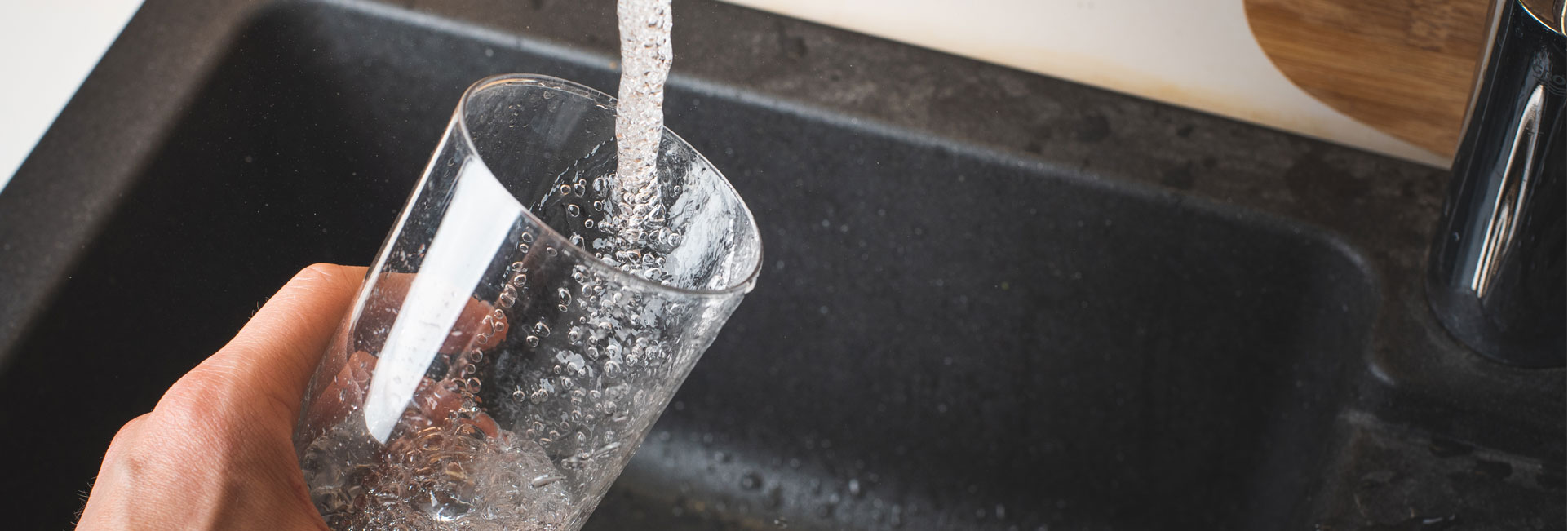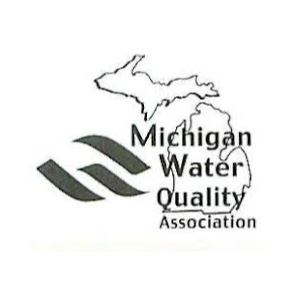Hard Water Problems & Solutions

Understanding hard water, its impact on your household, and finding effective solutions is crucial for protecting your family’s well-being and maintaining your home plumbing and appliances. Hard water, characterized by high levels of calcium and magnesium, can cause a wide variety of problems ranging from scale buildup in plumbing and appliances to making daily cleaning tasks challenging.
In this guide, we will go over the signs of hard water, the issues it creates, and various treatment options available, including traditional ion-exchange water softeners and innovative salt-free alternatives. Whether you are experiencing the tell-tale signs of hard water or simply want to improve your water quality, our expert insights and solutions will help you achieve a healthier, more efficient home environment. Join us as we delve into understanding hard water and discover the best solutions tailored to your needs at Besco Water Treatment.
Hard Water FAQ
- What Is Hard Water and How Is It Different From Soft Water?
- What Causes Water Hardness?
- What Are the Common Signs of Hard Water I Should Look For in My Home?
- How Can I Test the Hardness of My Water at Home?
- What Problems Can Hard Water Cause to Plumbing and Appliances?
- What Are the Health Implications, If Any, of Using Hard Water?
- What Are the Most Effective Methods for Treating Hard Water?
- What Are the Initial and Ongoing Costs Associated With Water Softeners?
- Are There Any Alternatives to Salt-Based Water Softeners?
Our Hard Water Treatment Services
Water Softeners for Purchase
Besco offers residential water softeners available for purchase. We offer a few different options that will prevent scale on appliances, though they all have their own benefits.
Water Softener Installation
At Besco Water, we have a team of experts, some with decades of experience, who can take the stress out of water softener installation by doing it for you.
Reverse Osmosis Systems
Are you looking for an alternative to a water softener? Check out our reverse osmosis systems, which filter out hard water minerals and other metals and contaminants.
Filtration System Repair
Our experienced maintenance specialists are happy to visit your home and address and fix any issues with your water softener or reverse osmosis system.
What Is Hard Water and How Is It Different From Soft Water?
As a consumer, you’ve probably heard the terms hard and soft water. But what do those terms actually mean? According to Healthline, “The hardness of water is determined primarily by the amount of calcium and magnesium it contains. Higher levels of these and other minerals make water hard.” These minerals are naturally present in the water as they percolate through limestone, chalk, or gypsum and dissolve into the supply. Soft water, by contrast, has lower concentrations of these minerals. The presence of these minerals in hard water can affect everything from laundry to plumbing, making understanding water types crucial for effective home management.
Besco Water Treatment offers specialized systems to soften hard water by removing excess minerals. Our advanced water softeners ensure your water is safer for your appliances and better for your skin and hair. They prevent the common problems associated with hard water and reduce soap wastage. To learn more, check out our water softeners page.
What Causes Water Hardness?
According to the US Geological Survey (USGS), “Hardness [in water] is caused by compounds of calcium and magnesium, and by a variety of other metals.” These minerals and metals enter the water supply as it moves through mineral-rich soil and rock formations. These minerals are absorbed into the water, leading to what we recognize as “hardness.” The hardness level can vary depending on the geological conditions of the region and affects not only households but also industrial settings.
Hard water is of higher concern with certain water supplies, depending on where the water is coming from. The USGS states, “Water systems using groundwater as a source are concerned with water hardness, since as water moves through soil and rock, it dissolves small amounts of naturally-occurring minerals and carries them into the groundwater supply.” Therefore, if magnesium and calcium-rich soil surround a water supply well, there is a good chance hard water will be delivered to homes that rely on that water supply.
At Besco Water Treatment, we assess the specific mineral content of your water supply with precision testing and analysis. Understanding the cause of water hardness allows us to provide more effective, tailored water treatment solutions that can address the different problems and challenges posed by your local water conditions. Contact us at (800) 964-0257 or fill out our online form to schedule your water analysis today!
What Are the Common Signs of Hard Water I Should Look For in My Home?
Identifying hard water in your home can be straightforward if you know what signs to look for. Here are several common indicators that you might be dealing with hard water:
- Spots on Dishes and Glassware: After washing, you may notice that your dishes and glasses dry with spots or a cloudy film caused by mineral residues left by hard water.
- Film on Bath Fixtures: Soap scum and filmy residues are often evident on shower doors, tiles, and faucets. Hard water reduces the ability of soap to dissolve properly, leaving behind these unsightly deposits.
- Reduced Soap and Shampoo Lather: Hard water can make it difficult to generate a good lather from soaps and shampoos, so you might use more of each product to achieve the desired foam.
- Faded and Stiff Laundry: Clothes washed in hard water often come out looking dull and feeling rough or stiff. Hard water minerals can build up in fabric fibers, contributing to wear and reducing the life span of your clothes.
- Scale Buildup in Appliances: Kettles, coffee makers, dishwashers, and washing machines can all suffer from scale buildup due to hard water. This affects the efficiency of these appliances and can lead to increased energy utility costs and potential breakdowns.
- Irritated Skin: Forbes states, “The skin might be the largest organ of your body, but it’s also quite delicate. Hard water can cause skin dryness and itchiness, acne flare-ups and even eczema and psoriasis.”
These signs indicate that your home might benefit from a water-softening system. If you notice these problems early, you can stop them from worsening in your plumbing and appliances. It’s important to deal with hard water right away.
Besco Water Treatment understands the challenges and frustrations associated with hard water. We design our solutions to address these common signs. Installing a water softener or other water filtration system will cause the following results:
- reduce spots on dishes
- prevent buildup on bathroom fixtures
- make laundry softer and cleaner.
Our experts at Besco thoroughly assess your water conditions and recommend the best hard water solutions tailored to your specific needs. “When you choose Besco, you ensure that your home benefits from high-quality water treatment, enhancing your daily life and preserving the condition of your home investments,” states General Manager Ken Morgan.
How Can I Test the Hardness of My Water at Home?
Testing for water hardness can be done using a variety of kits available on the market. These kits typically involve collecting a water sample and adding a chemical that changes color depending on the hardness level. These tests can provide a quick and effective way to assess the mineral content of your water.
Besco Water Treatment provides free professional water testing services that go beyond DIY kits. These services offer a detailed analysis of your water’s hardness and other quality parameters. This detailed assessment helps us recommend the most suitable water-softening solutions tailored to your needs. “Our experts can help interpret test results and guide you through selecting the most effective water treatment systems to ensure your water is soft and safe,” says General Manager Ken Morgan. “With Besco, you can trust that you’re getting the best advice and treatment options available.” Schedule your free water analysis today by giving us a call at (800) 964-0257 or filling out our online form.
What Problems Can Hard Water Cause to Plumbing and Appliances?
Hard water can lead to significant issues within plumbing systems and appliances. According to H2O Global News, “Hard water causes scale buildup in pipes, water heaters, and other appliances. This makes them less efficient, so they have to work harder to heat and pump the water.” The increased workload can also cause wear and tear on other parts of the systems, further driving up repair and replacement costs. Mineral buildup can also occur in pipes, decreasing water pressure as it limits the amount of water that can go through the pipe.
Besco Water Treatment installs high-efficiency water softeners to prevent issues caused by hard water on appliances and plumbing. Our systems are designed to help your appliances last longer and save you money on maintenance and energy. They achieve this by keeping your water soft at all times. Check out our water softener page to learn more about our different residential products available for installation.
What Are the Health Implications, If Any, of Using Hard Water?
While hard water is generally considered safe to drink, it has some health implications, particularly concerning skin and hair care. Hard water can contribute to and worsen dry skin and hair and may exacerbate conditions like eczema. According to Healthline, “The minerals in hard water can also change the pH balance of your skin, weakening it as a barrier against harmful bacteria and infections.” If this is a problem for you, consider getting a water softener for your home.
Overall, the health implications of using hard water are mostly related to personal comfort and dietary needs. It’s important to weigh these factors based on individual health conditions and preferences. If hard water presents a problem, particularly for skin, hair, or dietary reasons, using a water-softening system or other treatment methods can mitigate these issues effectively.
Besco Water Treatment’s softening solutions improve the aesthetic and sensory qualities of your water and enhance personal comfort by mitigating the harsh effects of hard water on the skin and hair. General Manager Ken Morgan says, “Our systems ensure that the water in your home is both pleasant and safe to use for all household purposes.”
What Are the Most Effective Methods for Treating Hard Water?
Effectively treating hard water involves various methods to alleviate the issues caused by high mineral content. The best method of treatment depends on the severity of hardness, household needs, and environmental considerations. There are plenty of options, such as traditional water softeners that use salt, salt-free magnetic or electronic descalers, and chelation systems.
Besco Water Treatment provides expertise in the best water-softening technologies, enabling us to match the right water-softening or conditioning system to your specific needs. Whether you’re looking for a robust ion exchange system or a more environmentally friendly salt-free alternative, our range includes traditional water softeners and innovative solutions designed to handle any water hardness level effectively. General Manager Ken Morgan states, “Our team assesses your water conditions and usage requirements to recommend the most efficient and cost-effective system, ensuring that you receive optimal water quality for your home or business.”
At Besco, we offer:
- Smart Water Plus Softeners: Our traditional model of water softener removes hard minerals from your water, making cleaning with water easier. Learn more by checking out our Smart Water Plus Softeners page.
- Smart Water Plus Twin Alternator: This water softener provides a continuous stream of softened water, due to its twin alternating system, without downtime needed for regeneration. To learn more, check out our Smart Water Plus Twin Alternator page.
- Smart Water Plus Extractor: This water-softening system reduces iron and sulfur levels in water without using harmful chemicals. Instead, this system uses oxidation and filtration processes to soften the water. Check out our web page on the Smart Water Plus Extractor to learn more.
What Are the Initial and Ongoing Costs Associated With Water Softeners?
The initial costs of water softeners can vary widely depending on the capacity and type of system. According to Architectural Digest, “Water softener installation ranges from $1,100 to $3,000. A dual-tank ion exchange system for a three- to four-bedroom home costs $2,500 on average.” Ongoing costs include maintenance and the purchase of salt for regeneration. Investing in a quality water softener can ultimately save money by extending the lifespan of plumbing and appliances and reducing soap and energy usage.
Besco Water Treatment is committed to making the ownership of water softeners as cost-effective and beneficial as possible. We offer competitive and transparent pricing on a range of high-quality water-softening systems tailored to fit different budgets and needs. Our efficient service plans ensure that your system is always running smoothly, minimizing unexpected breakdowns and prolonging the lifespan of your water softener. “Additionally, we provide detailed cost breakdowns for all potential customers, clearly outlining both the initial and long-term financial considerations,” says General Manager Ken Morgan. This transparency helps you understand the total investment required and the savings you can expect from having softer, cleaner water in your home.
Are There Any Alternatives to Salt-Based Water Softeners?
Salt-based water softeners are effective, but they are only one of many options for treating hard water. For those seeking alternatives that are more environmentally friendly and require less maintenance, there are several non-salt technologies and systems available, such as salt-free conditions, electronic and magnetic descalers, and chelation systems.
Another effective alternative for treating hard water, especially drinking water, is reverse osmosis (RO). This water filtration technology uses a semi-permeable membrane to remove contaminants and impurities, including minerals, from water. RO systems effectively reduce many contaminants, including those contributing to water hardness. While not typically used for whole-house water softening, reverse osmosis can provide excellent water quality for drinking and cooking purposes.
These alternatives offer several benefits over traditional salt-based systems. They are generally easier to maintain, as they do not require the regular salt refills that ion exchange systems do. They also avoid the discharge of brine solution into the environment, which can be a significant ecological benefit in areas where water conservation and brine disposal are concerns. Additionally, because they do not remove the minerals from the water but simply change their form, the water retains its mineral content, which can be beneficial for health.
Besco Water Treatment recognizes the diverse needs and preferences of our customers and provides a range of both salt-based and salt-free water treatment solutions, including innovative reverse osmosis systems. Our reverse osmosis and other salt-free systems are particularly favored by those looking for an eco-friendly solution to hard water problems, though reverse osmosis is usually used for drinking water.
These systems effectively prevent scale buildup, require less maintenance, and do not require additives, making them a popular choice for those who prefer a more sustainable approach to water treatment. “By offering both traditional and alternative water treatment options, Besco Water Treatment ensures that all of our customers find a solution that fits their lifestyle and environmental values,” says General Manager Ken Morgan.




